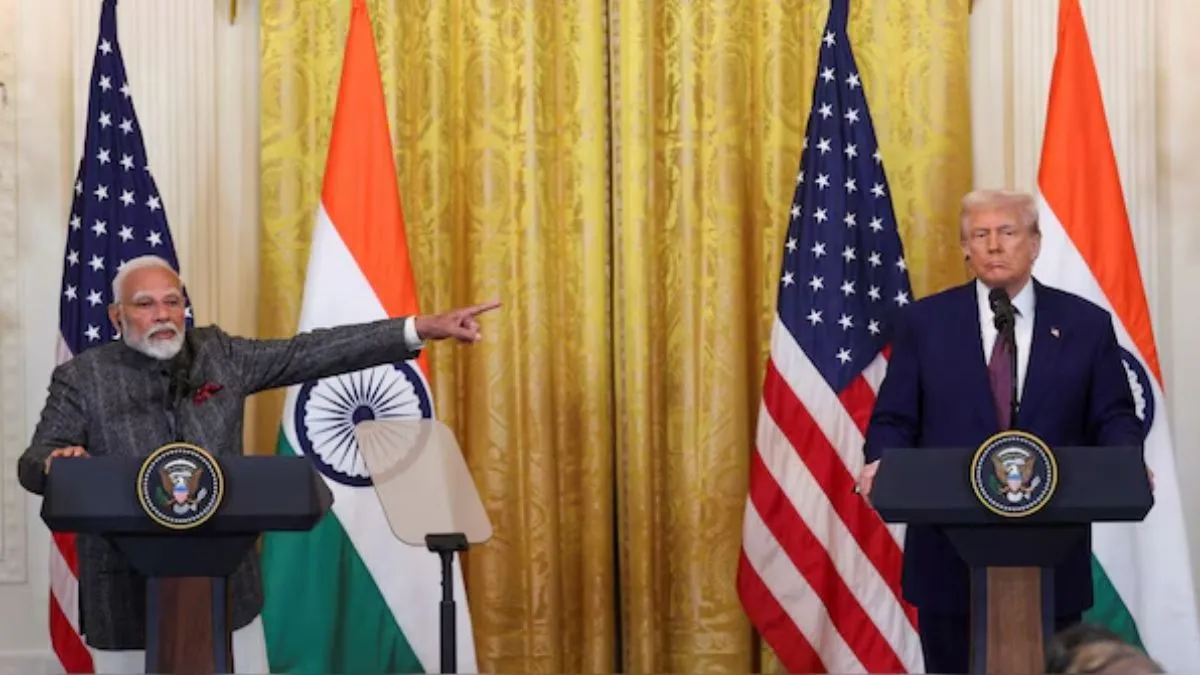India has strongly criticised the United States’ decision to impose an additional 25 per cent ad valorem tariff on Indian goods, calling the move “unfair, unjustified and unreasonable.” The Ministry of External Affairs (MEA) issued a sharp response on Wednesday, hours after US President Donald Trump signed an Executive Order targeting Indian exports, citing India’s continued purchase of Russian oil.
MEA spokesperson Randhir Jaiswal expressed deep disappointment over the US action, noting that several other nations are also importing oil from Russia in their own national interest. “It is extremely unfortunate that the US chose to impose additional tariffs on India for actions that several other countries are also taking in their own national interest,” Jaiswal said in an official statement. He added, “We reiterate that these actions are unfair, unjustified, and unreasonable. India will take all actions necessary to protect its national interests.”
Statement by Official Spokesperson⬇️
🔗 https://t.co/BNwLm9YmJc pic.twitter.com/DsvRvhd61D— Randhir Jaiswal (@MEAIndia) August 6, 2025
Diplomatic Tension Intensifies Over Russia Oil Trade
The complete Executive Order, issued August 6, 2025, validates a 25 per cent ad valorem tariff on all Indian imports starting 21 days from the signing. It only excludes shipments already in transit and a specific list of excluded goods. The order also approves additional action against nations discovered to be indirectly importing Russian oil.
Key features Of Trump’s Tariff:
• 25 per cent tariff goes into effect August 27, 2025
• Tariffs superimpose over current duties
• Wider action can be taken if other countries follow the Russian oil trade
• US Customs and Commerce to observe and advise further action
The announcement from Washington marks a significant escalation in trade tensions between the two strategic partners. President Trump’s executive order, made public through the White House, blamed India for aiding Russia’s economy indirectly by making ongoing energy purchases despite Western sanctions. Although the US has issued warnings to countries against purchasing Russian oil in the past, it’s its first direct trade move against India on this matter.
Indian authorities have always argued that the nation’s oil imports are guided by national interest and economic need. As global crude prices rise and inflationary heat sets in, New Delhi has stood by its choice to diversify energy sources, including subsidized Russian oil. “This is about energy security and the needs of 1.4 billion people. India will not compromise on its sovereignty or decision-making under external pressure,” a top Indian official said in ANI.
India, Russia Slammed US Tariff Action
In a statement released before today’s executive order, India’s Ministry of External Affairs (MEA) had categorically dismissed criticism of its Russian oil trade. New Delhi referred to continuing US and European commerce with Russia, including American imports of uranium, palladium, and fertilizers, labeling the scrutiny of India as “unreasonable and hypocritical.”
ALSO READ: PM Modi To Visit China For SCO Summit On August 31, First Since 2019: Reports
Moscow also had pre-emptively reacted to Trump’s threats in recent days. Kremlin spokesman Dmitry Peskov replied that sovereign states are entitled to choose their economic partners in accordance with national interest. “Sovereign nations must have, and do have, the right to choose their trade partners… independently,” Peskov stated. In addition, Russian Foreign Ministry spokesperson Maria Zakharova blamed the U.S. for following a “neo-colonial policy” to ensure its supremacy in a changing multipolar world. Straits and sanctions are a regrettable fact of life… applied against nations unwilling to toe Washington’s line,” she added.
ALSO READ: Trump Imposes 25% Additional Tariff On Indian Imports Over Russian Oil Purchase, Total Levy Now At 50%
India is now evaluating its options, with trade experts suggesting that countermeasures may be considered. The fresh US tariffs bring total duties on certain Indian goods up to 50%, impacting key export sectors including textiles, pharmaceuticals, and auto parts.
